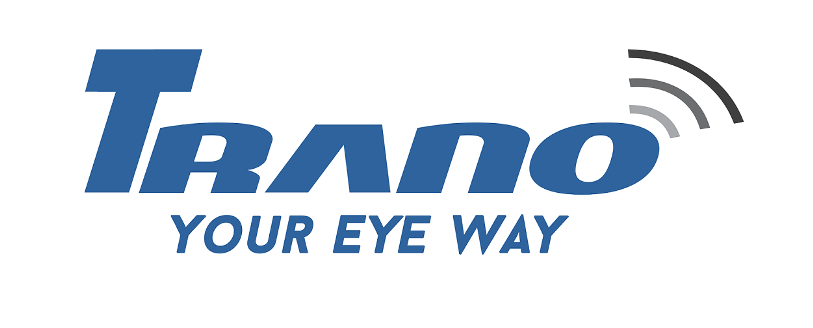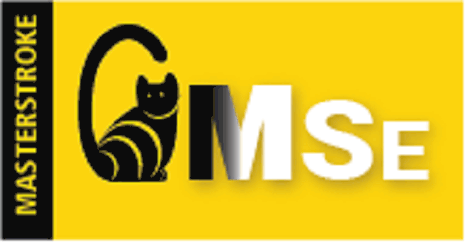Description

PDQ Inventory

Trano
Comprehensive Overview: PDQ Inventory vs Trano
PDQ Inventory by Admin Arsenal is a system management tool designed to assist IT professionals in managing and tracking hardware, software, and operating system configurations across workstations and servers within a network. It is often used alongside its companion product, PDQ Deploy, which automates the deployment of software and patches.
a) Primary Functions and Target Markets
Primary Functions:
- Hardware Inventory: PDQ Inventory provides detailed hardware information, including CPU, memory, disk space, and connected peripherals across all computers in the network.
- Software Inventory: It tracks installed software and applications and includes features for monitoring software versions and license compliance.
- Custom Reports: Users can create custom reports and dynamic collections using filters to organize computers based on specific criteria.
- Automated Scanning and Alerts: The software allows for scheduled scans, ensuring that IT professionals have up-to-date information on their network inventory. Alerts can be configured to notify users of changes or issues.
- Integration with PDQ Deploy: PDQ Inventory works in tandem with PDQ Deploy to streamline software deployment and ensure that updates are tracked smoothly.
Target Markets:
- Small to Medium Businesses (SMBs): Particularly useful for companies with a smaller IT staff who need a straightforward solution for managing IT assets.
- IT Service Providers: Managed Service Providers (MSPs) who require tools to monitor and manage client systems efficiently.
- Educational Institutions: Schools and universities needing to manage diverse IT assets across multiple locations.
b) Market Share and User Base
PDQ Inventory is quite popular among SMBs and IT service providers due to its affordability, ease of use, and comprehensive feature set. While it doesn't have the same market visibility as some more enterprise-focused solutions like Microsoft’s System Center Configuration Manager (SCCM) or Ivanti, it enjoys a strong niche user base who appreciate its user-friendly interface and integration capabilities.
The exact market share details are typically proprietary, but PDQ Inventory is favored in sectors that prioritize ease of integration, rapid deployment, and cost-effectiveness. Its user base is notably loyal, often highlighting its intuitive design and strong support community.
c) Key Differentiating Factors
-
Ease of Use: PDQ Inventory is renowned for its user-friendly interface and straightforward setup. This makes it accessible for IT departments without specialized training required for larger, more complex systems.
-
Dynamic Collections: The ability to create dynamic, query-based collections that automatically update based on set criteria is a hallmark feature, providing real-time audit capabilities that are more sophisticated than many competitors.
-
Affordability: Compared to enterprise alternatives, PDQ Inventory offers a cost-effective solution that does not sacrifice core functionalities that small to medium businesses require.
-
Integration with PDQ Deploy: The seamless integration allows IT managers to quickly move from identifying needed updates to deploying them, thereby maximizing operational efficiency.
-
Community Support: PDQ Inventory benefits from a robust community of users and a responsive support team that are often highlighted as major advantages.
-
Lightweight Footprint: Unlike other more robust systems, PDQ does not require heavy infrastructure investments, making it easier to implement in environments with limited resources.
Overall, PDQ Inventory is a compelling choice for organizations that need solid inventory management capabilities without the complexity and cost of more heavyweight solutions. Its integration with PDQ Deploy further bolsters its appeal by offering a streamlined workflow from identification to execution in software management within IT environments.
Contact Info

Year founded :
Not Available
Not Available
Not Available
Not Available
Not Available

Year founded :
Not Available
Not Available
Not Available
Not Available
Not Available
Feature Similarity Breakdown: PDQ Inventory, Trano
When comparing PDQ Inventory and Trano, it's essential to analyze their core features, user interfaces, and any unique characteristics each may offer. Below is a feature similarity breakdown:
a) Core Features in Common
-
Inventory Management:
- Both PDQ Inventory and Trano provide robust inventory management systems. They allow users to manage hardware and software inventories effectively, providing insights into the assets within a network or an organization.
-
Real-Time Data:
- These tools offer real-time data management, ensuring that the information related to inventories is up-to-date. This is crucial for making informed management decisions.
-
Reporting and Analytics:
- Both products provide reporting features, enabling users to generate reports on various aspects of the inventory system, such as asset distribution, software usage, etc.
-
Automation:
- Automation can be a significant time-saver, and both PDQ Inventory and Trano offer automation features. They streamline repetitive tasks, such as regular inventory scans, patches, updates, and alerts.
-
Customizability:
- Both tools allow a degree of customization, adapting to the specific needs and requirements of the organization using them.
b) User Interface Comparison
-
PDQ Inventory:
- PDQ Inventory features a user-friendly and straightforward interface with a focus on functionality and efficiency. It generally follows a Windows-style layout, emphasizing ease of navigation. Its dashboard is intuitive, allowing users to quickly access essential features and data visualizations.
-
Trano:
- Trano’s interface is often praised for its modern aesthetics and clean design. It offers a more visually engaging experience with a focus on simplicity and usability. The use of contemporary graphics and intuitive navigation paths helps in making the interface feel less cluttered and more accessible for new users.
c) Unique Features
-
PDQ Inventory:
- Integration with PDQ Deploy: PDQ Inventory tightly integrates with PDQ Deploy, allowing seamless software deployment alongside inventory management. This feature facilitates efficient software update processes and patch management.
- Advanced Targeting and Filtering: PDQ Inventory offers advanced targeting by creating dynamic collections and applying filters, which helps in managing large sets of data with specific criteria.
-
Trano:
- Enhanced Collaboration Tools: Trano often incorporates collaboration features that allow teams to work together more efficiently on shared inventory data, enhancing communication and collaboration between departments.
- Mobile Access and Cloud Integration: Trano might provide better support for mobile devices and cloud-based management, allowing for more flexible access to inventory data from anywhere.
- Sustainability Tracking: Some users might find sustainability tracking features helpful if Trano offers insights into the environmental impact of the assets, which can be a unique decision-making tool.
In summary, while both PDQ Inventory and Trano offer robust inventory management solutions with similar core features, they differ in terms of user interface design and unique features like integrations and additional functionalities. It ultimately depends on the specific needs of a business when choosing between the two.
Features

Not Available

Not Available
Best Fit Use Cases: PDQ Inventory, Trano
PDQ Inventory and Trano are two distinct tools with different strengths and use cases, making them ideal for various business needs and project types. Let's break down each:
PDQ Inventory
a) For what types of businesses or projects is PDQ Inventory the best choice?
-
Businesses with a Large Number of Windows PCs: PDQ Inventory is particularly suited for organizations with a significant number of Windows-based computers. It is specifically designed to collect detailed information about Windows software and hardware configurations.
-
IT Departments Requiring Detailed Audit Capabilities: Companies that need extensive auditing capabilities to check for software compliance and licensing can benefit greatly. PDQ Inventory provides comprehensive data to help IT professionals ensure compliance and identify unauthorized applications.
-
Medium to Large Enterprises: These organizations often need robust tools to manage and track many endpoints. PDQ Inventory excels in automating inventory management tasks, simplifying the process for IT teams in larger companies.
-
Managed Service Providers (MSPs): MSPs can utilize PDQ Inventory to manage multiple client environments efficiently. Its ability to collect data from numerous machines and generate detailed reports allows MSPs to provide better service to their clients.
d) How does PDQ Inventory cater to different industry verticals or company sizes?
PDQ Inventory caters primarily to industries heavily reliant on IT infrastructure, such as technology, finance, healthcare, and education, because of their need for stringent IT asset management and regulatory compliance. It fits well in medium-to-large organizations where managing a sprawling IT landscape is required. The tool's scalability and customization options make it versatile across various company sizes within these sectors.
Trano
b) In what scenarios would Trano be the preferred option?
Assuming Trano refers to a fictional or niche software focused on project management or financial tracking:
-
Niche Industries with Specific Workflow Needs: If Trano is a specialized tool designed for certain industries (such as construction or logistics), it would be preferred in scenarios where industry-specific features offer a distinct advantage over more general tools.
-
Project-Based Businesses: For companies that operate on a project basis (like engineering firms, creative agencies, etc.), a tool like Trano, assuming it offers excellent project tracking and resource management features, could be highly beneficial.
-
Small to Medium Enterprises (SMEs): If Trano offers simplicity and ease of use with adequate functionality, it might be preferred by SMEs that wish to avoid the complexity of larger enterprise-grade solutions. The emphasis would be on usability and the ability to manage tasks, timelines, and financials effectively without overburdening the user with features they don’t need.
d) How does Trano cater to different industry verticals or company sizes?
Trano would cater to industry verticals by aligning its features with specific project management or financial tracking needs. Its adaptability to different workflows and ease of customization could make it a favorite among smaller companies or specific sectors needing efficient and straightforward tools. By focusing on core functionalities that meet the unique demands of smaller operations or specialized industries, Trano can provide comprehensive support without the complexities that larger systems might entail.
In conclusion, PDQ Inventory is optimal for IT-focused and compliance-centric environments across various industries, particularly where Windows systems dominate. Meanwhile, Trano, depending on its specifics, would be preferred in scenarios emphasizing project management and financial oversight for niche industries or smaller companies prioritizing tool simplicity and direct relevance to their workflow needs.
Pricing

Pricing Not Available

Pricing Not Available
Metrics History
Metrics History
Comparing undefined across companies
Conclusion & Final Verdict: PDQ Inventory vs Trano
Conclusion and Final Verdict for PDQ Inventory vs. Trano
When deciding between PDQ Inventory and Trano, it's crucial to evaluate the strengths and weaknesses of each product and consider the specific needs and priorities of your organization. Here's a comprehensive look at these two software solutions:
a) Best Overall Value
PDQ Inventory offers the best overall value for organizations primarily looking for powerful, customizable IT asset management. Its extensive feature set, paired with ease of use and efficient deployment, makes it highly appealing for IT professionals needing detailed visibility into their hardware and software environment. However, if specific project management capabilities or sector-specific needs are prioritized, Trano might present a tailored solution worth considering.
b) Pros and Cons
PDQ Inventory
Pros:
- Comprehensive IT Management Tools: Offers robust features that allow for granular data collection about devices, software, patching, and updates.
- Easy Integration: Integrates seamlessly with PDQ Deploy, enhancing overall IT efficiency.
- User-Friendly Interface: Known for its straightforward and intuitive design, reducing the learning curve for new users.
- Customization and Automation: Highly customizable reports and automated scanning save administrators time.
Cons:
- Niche Focus: Primarily tailored for IT asset management, lacking broader project management functionalities.
- Cost: Licensing may become costly for larger enterprises or when bundled with other PDQ products.
Trano
Pros:
- Project Management Features: Optimal for organizations requiring both asset management and comprehensive project management functionalities.
- Sector Specific: Offers customization and modules that might cater to specific industry needs.
- Scalability: Often designed to adapt to various business sizes and requirements.
Cons:
- Complexity: Might have a steeper learning curve compared to more straightforward IT asset management tools.
- Integration Challenges: Depending on existing IT infrastructure, integration might require additional effort or customization.
- Varied Focus: As a more diverse tool, it might lack some of the deep IT-specific features that PDQ provides.
c) Recommendations
For users trying to decide between PDQ Inventory and Trano, consider the following recommendations:
-
Assess Operational Needs: Clearly define whether the primary need is IT asset management, project management, or a blend of both. Choose PDQ Inventory for robust IT insights, and consider Trano for broader project and asset management needs.
-
Scalability and Integration: Evaluate future scalability and ease of integration with existing systems. PDQ offers solid integration with other IT management tools, while Trano might be better for diverse business processes.
-
Budget Considerations: Align choices with budget constraints, accounting for both short-term licensing costs and long-term value and savings from optimizing your IT or project management processes.
-
Trial and Feedback: Where possible, engage with trial versions of both products, involve the relevant teams, and consider their feedback on usability and effectiveness relative to your objectives.
Ultimately, each software has its own merits, and the best choice will depend on the specific context and requirements of your organization.
Add to compare
Add similar companies



